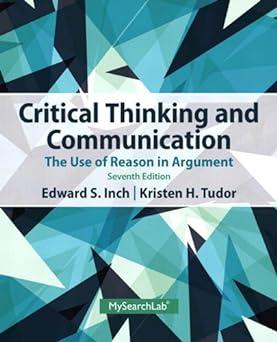9. When Fidel Castro came to power in Cuba in 1959, the United States was gravely concerned...
Question:
9. When Fidel Castro came to power in Cuba in 1959, the United States was gravely concerned about having a communist government just 90 miles off its shores. Moreover, Castro’s close ties with the Soviet Union threatened U.S. security, especially if the Soviets decided to deploy nuclear weapons in Cuba. Following a disastrous attempt to overthrow Castro with the failed Bay of Pigs invasion and reaching the edge of nuclear war with the Cuban Missile Crisis, the United States instituted a near total ban on trade of any kind with Cuba. These sanctions are no long acceptable and should be lifted. They were not successful in removing Castro from power; rather, they have severely hurt the Cuban people economically and have limited their access to basic human necessities—food, clothing, shelter, and medicine. There is simply no reason to continue these sanctions and certainly there is no danger from Cuba’s government.
The Cold War is over; it is time to make peace. Diagram the above arguments using both the Toulmin Model and the Co-Orientational Model of argument. Then, based on what you know, criticize each argument.
What makes it strong? What makes it weak? For example:
Capital punishment for murderers is widely supported by the general population. A Harris Poll in 1975 reported 59 percent of the public was in favor of capital punishment, and that proportion reportedly was increasing. Another poll in 1978 asked the question, “Are you in favor of the death penalty for persons convicted of murder?” The results showed 66 percent of the populace in favor of the death penalty.
Criticism These polls are very outdated. Perhaps public opinion has shifted since the 1970s. Besides, just because the public supports something does not mean that it should be favored.
Step by Step Answer:

Critical Thinking And Communication The Use Of Reason In Argument
ISBN: 9780205925773
7th Edition
Authors: Edward S. Inch, Kristen H. Tudor






